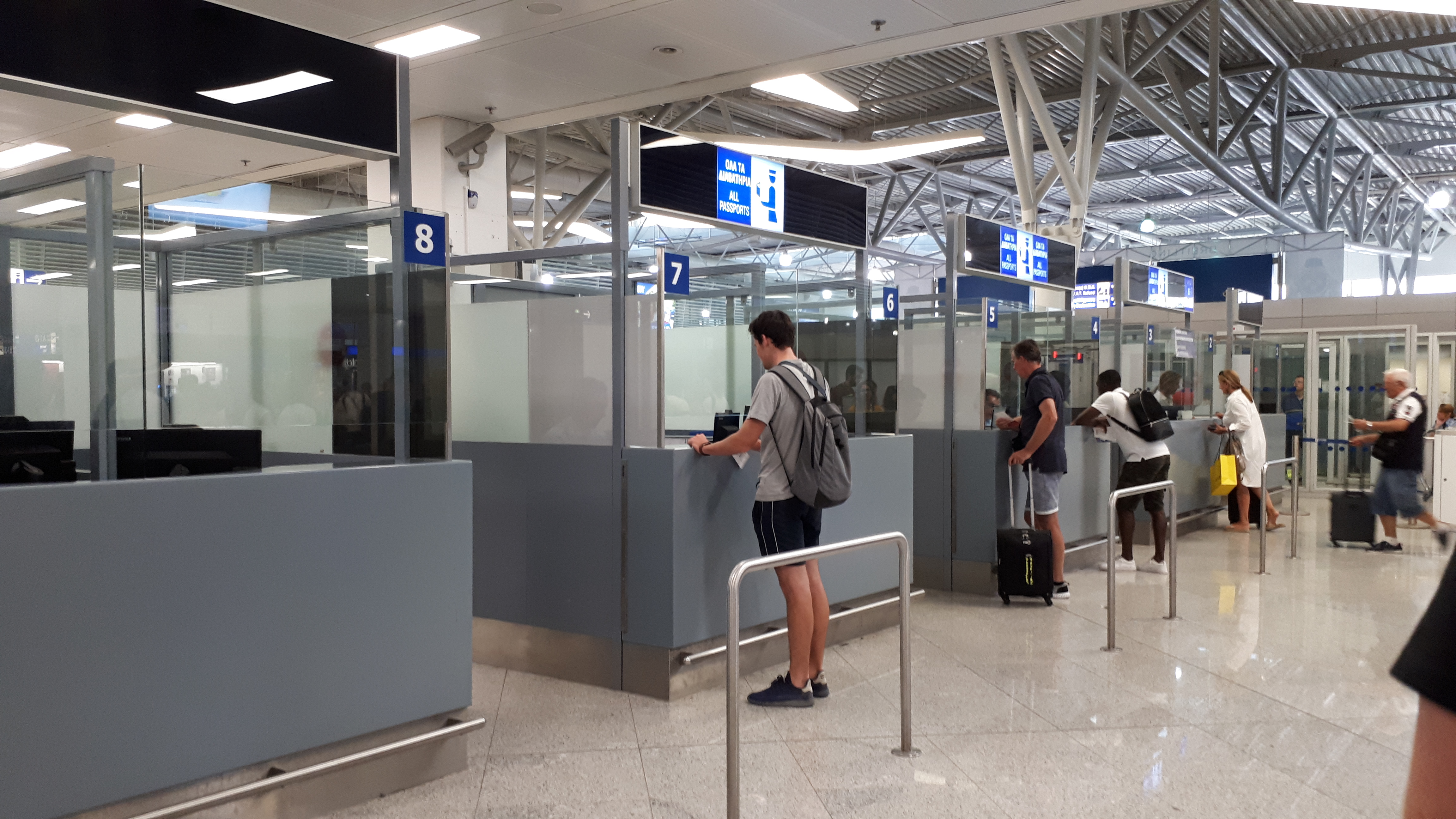When it comes to customs & immigration, don’t take chances.

One major difference between domestic and international travel is that international travelers pass through two additional security checkpoints. One is immigration, also known as passport control, whose responsibility it is to make sure that the people attempting to enter a country are doing so lawfully. The other is customs, with a similar goal of making sure that the items being brought into a country are being brought in accordance with the laws of that country.
Immigration

As you enter a new country, you will first pass through immigration. In the United States, this is administered by Customs and Border Protection (CBP). At the airport, arriving passengers are typically sorted into resident/citizen and non-resident/citizen lines. There may be more specific lines depending on the airport (for example, citizens, EU residents, immigrants, among others). During this time, do not use your cell phone. This is one area in the airport where they take security REALLY seriously.
It is a kind of normal thing to be nervous about this. It is the same feeling you get when you’re not speeding but you see a cop driving behind you. You know you didn’t do anything, but you still feel guilty. The CBP (or local equivalent) agents are generally pleasant, some are outright friendly.
So, what do you do?
Wait in line until called to a counter. When you get to the counter, you need to present your travel documents. This includes:
- passport
- visa (where required)
- disembarkation card (provided by a flight attendant during flight)
- immunization documentation (where required)
The official will probably ask you a few questions about your trip. Be prepared to tell them the nature of your visit (school trip), how long you’ll be staying, where you will stay (hotels, with families), what cities you’ll go to, etc. They may require fingerprints, which will be done digitally with your hand on a scanner. This is something that is completely routine in some countries for entry. If you don’t understand what they say or what they want, let them know.
At this time the official will either stamp your passport and let you continue on, or refer you for secondary screening. This typically means that something doesn’t make sense, either on your paperwork or with what you said, or it is a random selection and you won that lottery. If you’re a student, your teacher, as guardian on this trip, should be able to join you. [Teachers: let kids go ahead of you and all meet up after this check, or you go near the beginning and wait for all kids to come though.]
And that’s it! Now it’s time to pick up any checked baggage and pass through customs.

Comments are closed